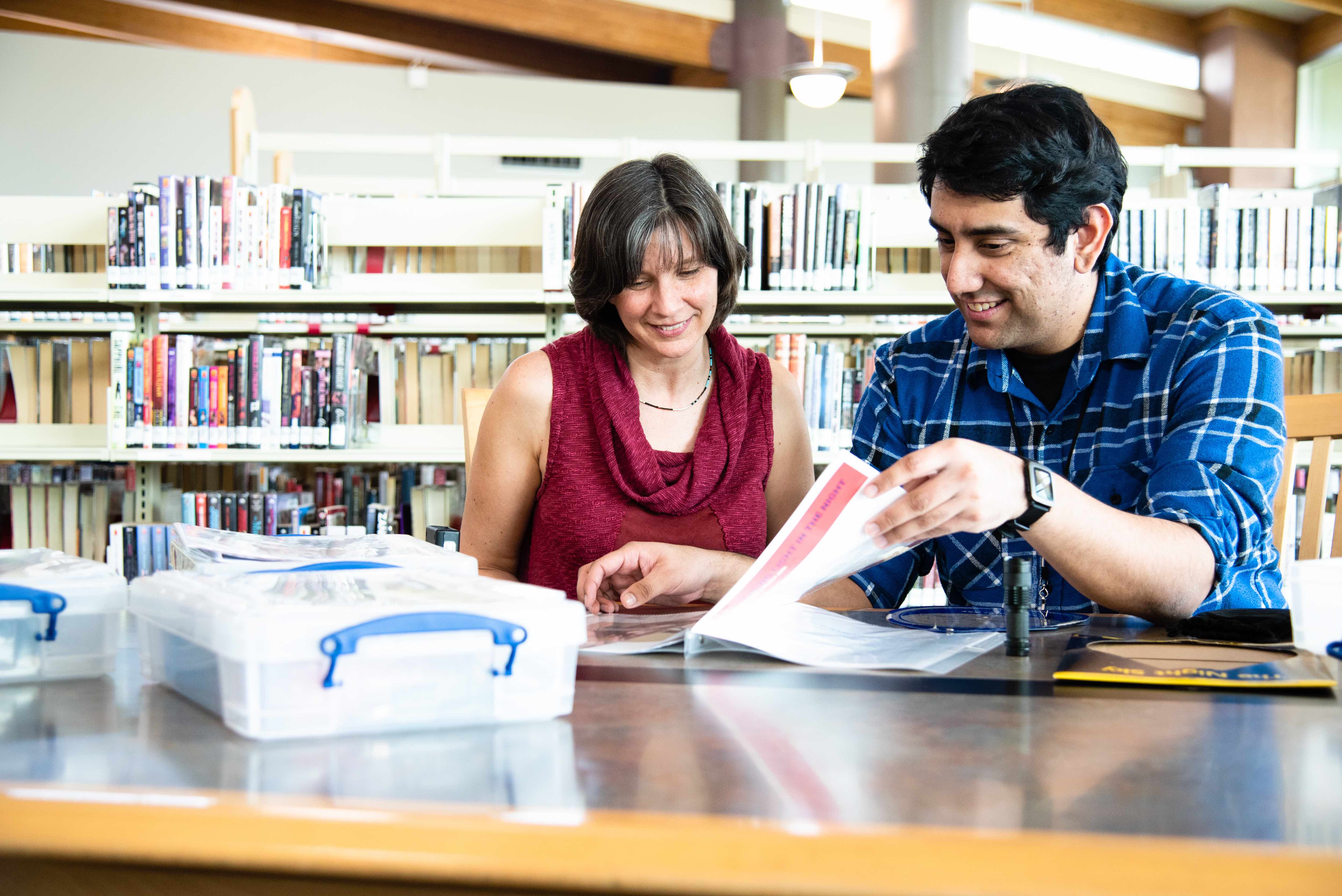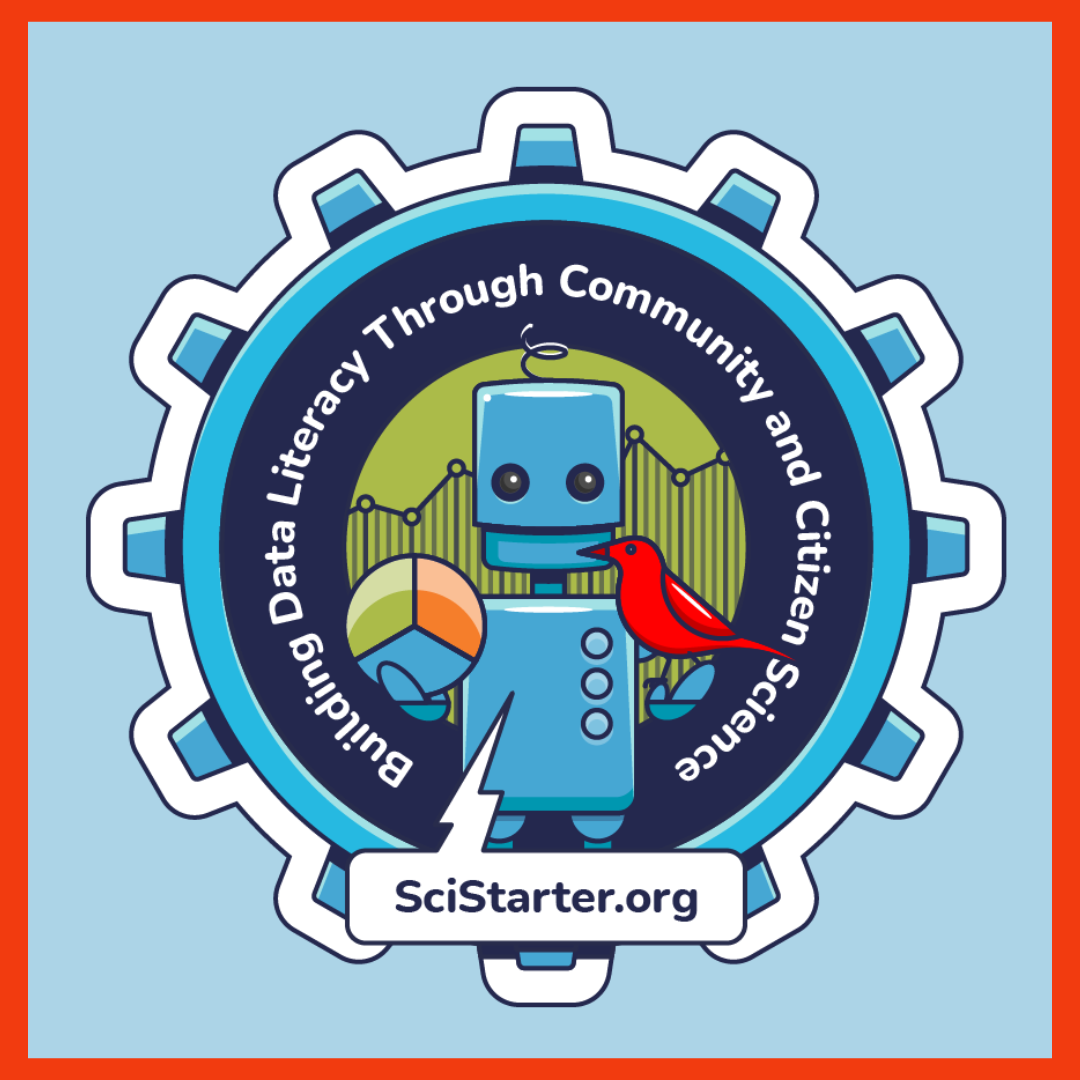
Data literacy is someone’s ability to understand and interpret data. In today’s world, we encounter data everywhere. Our smartphones, cars and TVs collect and gather data from us when we use them, and we collect and gather data every time we make a decision. We base our decisions on the data we can interpret: choosing schools, voting on a candidate or an issue and calculating personal risk all come down to how we assess data. Data is all around us and it’s important for us to be able to understand and interpret that data meaningfully.
Data is also a big part of citizen science, which lets volunteers like you partner with scientists to gather real information about the world and contribute to ongoing science investigations.
That’s a big part of the reason that SciStarter partnered with the National Library of Medicine to create a free online, self-guided training on data literacy that anyone can take. When you contribute data to projects, you are making valuable contributions that advance scientific research. Gaining the knowledge and skills to contribute and interpret data can help you see exactly how you’re helping.
Learn more: Join SciStarter LIVE! on October 18 as we go through the Data Literacy training together!
The “Building Data Literacy Through Community and Citizen Science” training, created by SciStarter with support from the Network of the National Library of Medicine, is a first of its kind. This training is designed specifically for the public (you!)to learn about data literacy, and how to interpret and analyze data. You’ll practice skills that are applicable throughout your life, including data literacy, data-driven decision-making, critical thinking and data analysis. The page also includes links to resources for facilitators, like PowerPoint slides and a PDF with links to resources referenced.
To take part in the Data Literacy Training, you’ll first need to complete SciStarter’s Foundations of Citizen Science training, a simple, quick tutorial on citizen science. When you complete any training module, you’ll also earn a badge, which can be displayed on your Dashboard or on social media, and which lets everyone see your achievements. The badge image also contains metadata recognizing the skills and competencies you get from the training. They include:
- Articulating how citizen science benefits science and society.
- Describing data literacy and how it can help you make better decisions.
- Differentiating the types of data collected and used by scientists and citizen science participants. Critically interpreting data-rich graphs and charts.
- Explaining how data quality impacts the credibility of scientific conclusions.
Trainings can be completed without SciStarter accounts but to earn a badge, learners will need free SciStarter accounts because the badges provide evidence that a specific learner practiced or acquired the skills listed above. More than 12,000 people have completed a training module on SciStarter so far! There are also other trainings you can complete in the series.
A key feature of data literacy is interpreting graphs. It’s something that can be confusing at first — studies show that even college-educated adults often have difficulty understanding graphs. This new training provides real-life examples of different graphs and data from citizen science projects, and provides guidance on interpreting them. The goal is to increase citizen scientists’ confidence and ability to interpret data and sources in order to build knowledge, ask effective questions and make more informed decisions.
Increasing data literacy supports the Network of the National Library of Medicine’s (NNLM) broader goal of increasing digital health literacy—the ability to search for, understand, and analyze health information online. NNLM and the All of Us Research Program partnered with the Public Library Association (PLA) and Wisconsin Health Literacy (WHL) to develop free, downloadable digital health literacy curriculum for use in libraries and schools along with accompanying “Learn Internet Skills” online modules. Trainings like these reduce the digital divide by helping people gain the digital literacy skills needed to access and evaluate health information online and participate in biomedical research programs like All of Us.
Expand your data literacy skills and participate in citizen science projects with the “Building Data Literacy through Community and Citizen Science” training on SciStarter.
Data literacy is a key to the advancement of science for the betterment of health, and to being fully engaged in research. To learn more about All of Us and how you can contribute to building one of the most diverse health databases in history, visit joinallofus.org/nlm.
Source: https://eric.ed.gov/?id=EJ1239335
This tutorial is supported by funds to SciStarter from the National Library of Medicine, National Institutes of Health under cooperative agreement number 3UG4LM012342-05S1 at the University of Pittsburgh, Health Sciences Library System.

